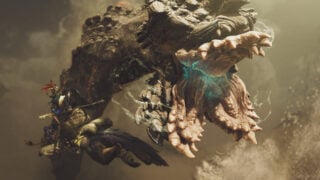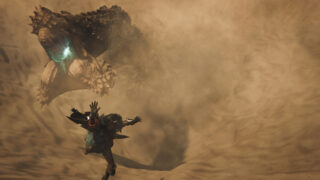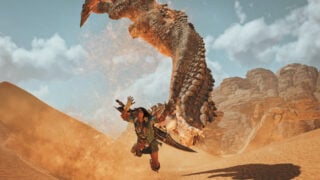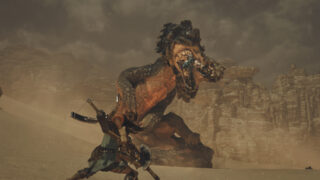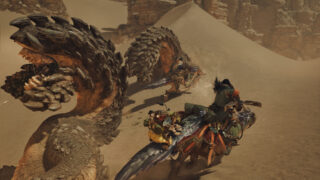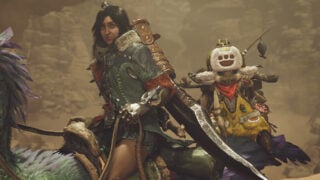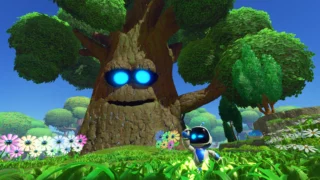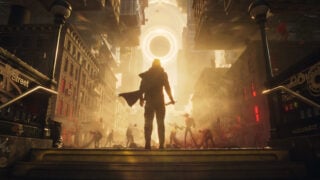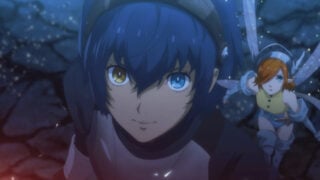Monster Hunter Wilds looks like a crowning moment in Capcom’s second golden age
The follow-up to Capcom’s most successful title looks like another Capcom smash
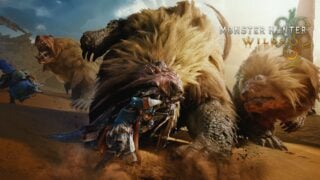
“Have you seen the Monster Hunter Wilds demo?”
That was the refrain across Summer Game Fest, as word spread of Capcom‘s behind-closed-doors showcase of the next big Monster Hunter title.
The demo, which at the time of writing Capcom has no official plans to release footage of, was such a hit that people were sneaking back in to see it again.
Update
The Monster Hunter Wilds review is here, featuring our final thoughts on the Worlds sequel.
Read our Monster Hunter Wilds guides:
- How to craft and upgrade Armor in Monster Hunter Wilds
- How to customize your Seikret in Monster Hunter Wilds
- How to play online with friends in Monster Hunter Wilds multi-player
- Monster Hunter Wilds Cooking Guide
- Monster Hunter Wilds Weapons Tier List
It opened in the Hunter’s Basecamp in the Windward Plains. Much like previous Monster Hunter titles, so much of the game’s personality is packed into the areas outside of the monster fights themselves.
Palicoes are preparing meals, they’re counting peanuts, and they’re generally larking around the camp. Even as the Monster Hunter franchise gets bigger, this level of lightheartedness remains. We asked series producer Ryozo Tsujimoto and director Yuya Tokuda if that was key to Monster Hunter itself.
“That’s very important, Tokuda replied. “No matter what we’ve done with game design or how epic in scale we’ve made the game, the one thing we never want to hear is that it didn’t feel like Monster Hunter anymore.
“These lighter touches and characterful elements keep the series unique and give it a flavor that’s different from every other action game in the industry.”
This is made clear when we’re stocking up on goods from the local merchant – which is famous for selling a brand of cheese – and she replies with “cheese and thank you.”
Once we were on our way to hunt down a beast, there were no loading screens or pausing of any kind. We were straight out on the hunt, stalking our target.
The game’s map now allows players to see where certain items or monsters will be depending on the time of day. The game has a full day and night cycle, as well as a dynamic weather system which has a major effect on which monsters will spawn.
When we finally found the monster we got our first few shots in before taking a step back. Combat is similar to Worlds, but expanded in virtually every way. New weapons, new traps and new environmental hazards that you can use against your prey.
After getting some serious shots in on our target, and causing some of its thick skin to rip apart, the weather suddenly shifted. The bright, sunny day was replaced by a violent thunderstorm.
“After getting some serious shots in on our target, and causing some of its thick skin to rip apart, the weather suddenly shifted. The bright, sunny day was replaced by a violent thunderstorm.”
“One of the main new concepts is the extremes of the weather in the world. Suddenly in a moment, everything can change. Monsters form packs or herds. Some monsters only appear in some conditions,” said Tokuda.
At this point, the fairly scary beast we had been pursuing was shown up quite substantially by a flying monster that crashed down to earth. With a thunder crack it let off a devastating attack, shredding the health of our initial target. We were told that if we were to get hit with one attack from the flying thunder beast, we’d be finished.
These turf wars are one of the keys to Monster Hunter Wilds. While 1v1 turf wars did exist in previous Monster Hunter worlds, they are far expanded in this game, and form the basis of a lot of the game’s strategy. While other monsters are dangerous, they’re also an incredible tool for taking down your main target.
That’s not even mentioning the monsters lurking below the surface of the sand, which caused a great chasm to open up under our feet, sending our target and his herd-mates down into a pit. While our target was too strong to be consumed, his friends were, just as we would have been if we hadn’t kept our wits about us.
In some previous Monster Hunter titles, the world has felt like a random arena for you to have one specific fight in. There was very little emergent gameplay, and having fights that actually looked cool was somewhat difficult. Monster Hunter Wilds wants to make you the coolest person on earth.
The world feels alive. You’re not menuing your way into fights, you’re just running up to what you want to hunt and the mission starts.
“We approach each title on its own terms,” Tsujimoto said. “We’ve moved forward with the times from the days with the divided maps – now even the base area and the field itself is seamlessly traversable.”
As we the demo concluded, we couldn’t help but chuckle at the realisation that Capcom had done it again. It’s stupid to bet against it now, but even the best developers have a blip. Monster Hunter Wilds certainly isn’t that. We asked about the feeling within Capcom as the company enjoys this unprecedented success.
“We have an unchanging desire to make great titles that make players happy,” Tsujimoto replied. “We never want to compromise that for what happens in business. We’ve never lost sight of that spark.
“I think that Capcom culture is something that users appreciate. Players play our games and think only Capcom could have made this.”

It’s difficult to argue. There is arguably no developer today that has so many of its franchises at their absolute apex. Resident Evil is firing on all cylinders, Dragon’s Dogma 2 is a Game of the Year contender, and from what we’ve seen, Monster Hunter Wilds will be no exception.
We left the demo lamenting that it won’t be out for another year, although considering Capcom is holding hands-on events alongside Gamescom later this year, it had us checking flight prices to Germany.
Just before we left we asked about bringing the series back to Nintendo, perhaps on more advanced hardware. A hearty laugh filled the room.
A question for another day, perhaps.
